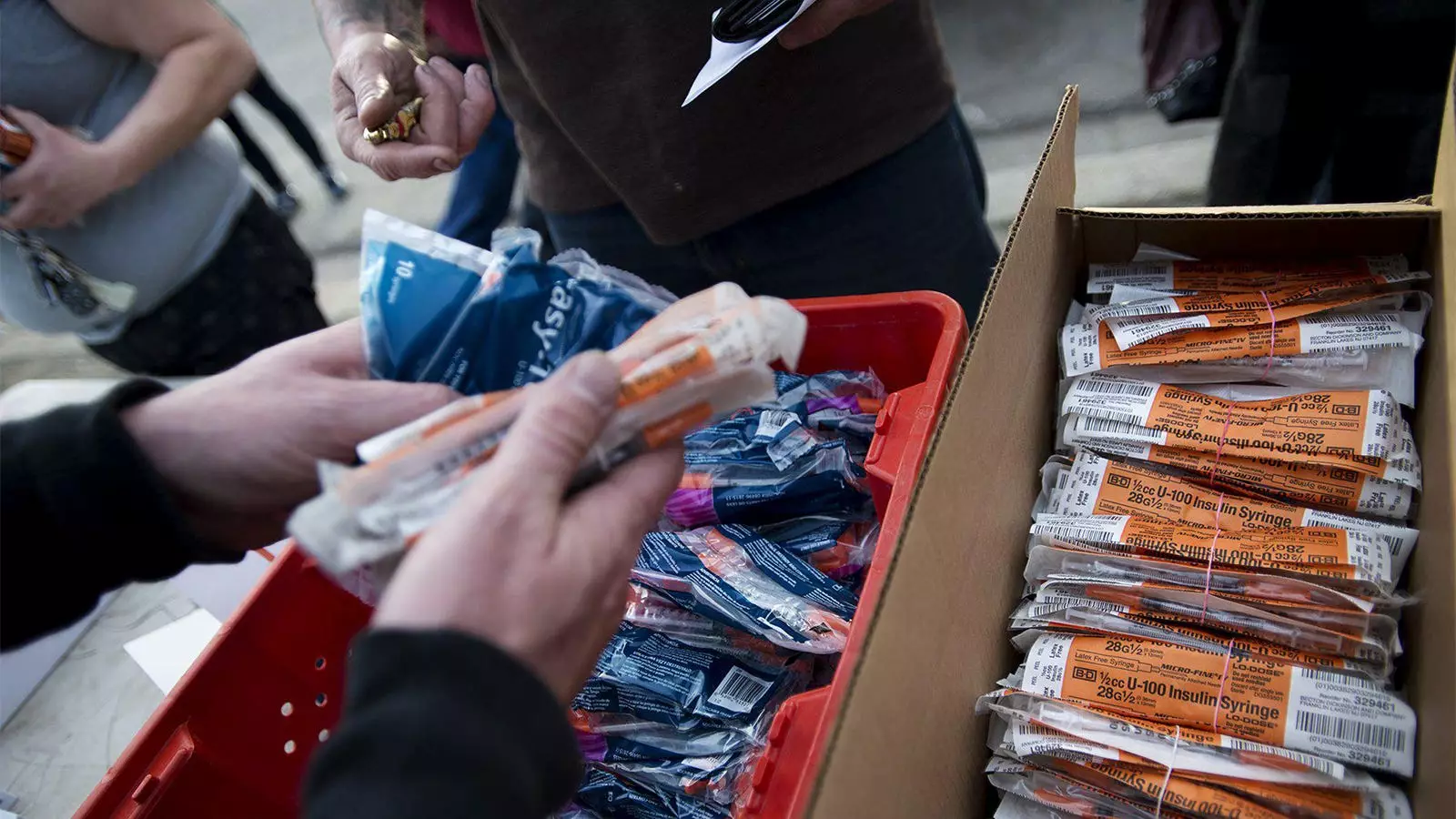A needle exchange program, also known as a syringe services program, is a harm reduction strategy that provides clean and sterile injecting equipment to those who inject drugs. These programs aim to prevent or limit the negative outcomes that may come from drug use. However, despite their proven effectiveness, needle exchange programs continue to face backlash and are even at risk of being banned in certain states, such as West Virginia.
The principle of harm reduction acknowledges that individuals will continue to use drugs, regardless of access to clean injecting equipment. Rather than attempting to stop drug use altogether, harm reduction strategies aim to minimize the negative consequences associated with drug use. Needle exchange programs are evidence-based strategies that play a crucial role in harm reduction.
The Benefits of Needle Exchange Programs
Needle exchange programs have been endorsed by the CDC as a public health strategy due to their numerous benefits. These programs have been proven to reduce the transmission of viral infections, such as HIV and hepatitis C, among drug users. Additionally, needle exchanges act as a bridge to other essential services, including medication-assisted treatment.
West Virginia, a state struggling with drug-related overdoses and HIV outbreaks, is currently considering banning needle exchange programs through House Bill 4866. However, such a decision would only worsen the existing challenges faced by the state. Needle exchange programs play a vital role in addressing these issues and supporting individuals who use drugs.
Contrary to popular belief, needle exchange programs offer much more than clean injecting equipment. These programs provide a range of services, including HIV and hepatitis C testing, medical services, mental and behavioral health services, overdose prevention, social services, and housing assistance. By creating a safe and trusted space, these programs help individuals seek and access further support, treatment, and counseling when they are ready for it.
The Growing Issue of Drug Use in the U.S.
Drug use in the United States continues to rise, with millions of individuals using substances such as cocaine, methamphetamine, and heroin. The number of individuals injecting drugs has also steadily increased over the past decade. Given these alarming trends, it is essential to meet drug users where they are and provide non-judgmental strategies and resources to mitigate the harms associated with drug use.
The primary purpose of needle exchange programs is to prevent the sharing and reuse of needles, ultimately reducing the spread of blood-to-blood viral infections like HIV and hepatitis C. These programs also play a significant role in preventing bacterial skin infections. With accessible resources and proper education, these easily preventable infections can be minimized or eliminated.
Debunking Misconceptions
Despite decades of research, needle exchange programs continue to face misconceptions. It is crucial to debunk these misconceptions in order to fully recognize the value of these programs. Research shows that needle exchange programs do not increase drug use or crime rates. On the contrary, they have been found to increase the likelihood of individuals seeking substance use treatment and practicing proper needle disposal.
Drug use is a complex issue influenced by various societal and structural factors, including trauma, homelessness, oppression, and income inequality. Criminalizing drug use and ignoring the services aimed at supporting drug users only exacerbates the problem. It is imperative for policymakers, community advocates, healthcare workers, and individuals with lived experience to collaborate and ensure that needle exchange programs are available to meet the diverse needs of communities.
Needle exchange programs are a vital component of harm reduction strategies. These programs have proven their effectiveness in reducing the transmission of infections and connecting individuals to essential services. Banning needle exchange programs, as proposed in West Virginia, would only exacerbate the existing drug-related challenges in the state. It is crucial for all stakeholders to prioritize the well-being of individuals who use drugs and work together to implement programs that meet their needs.

Leave a Reply